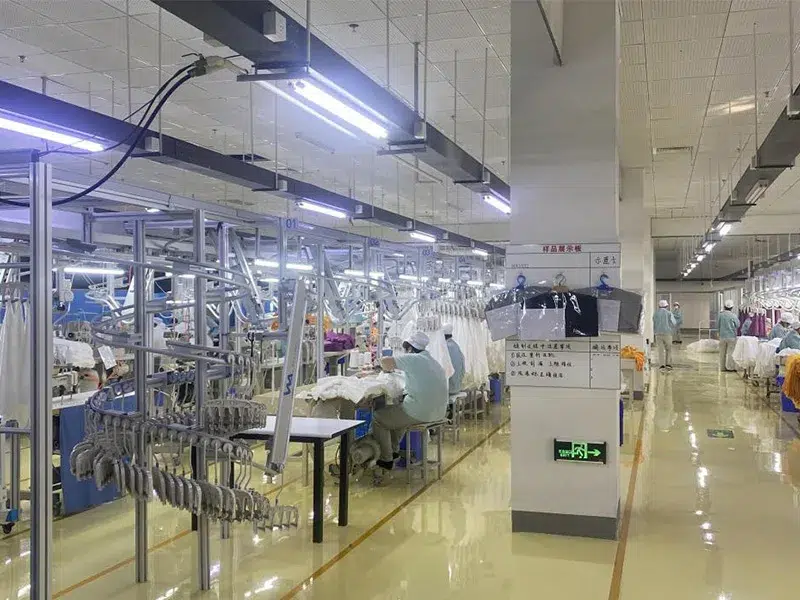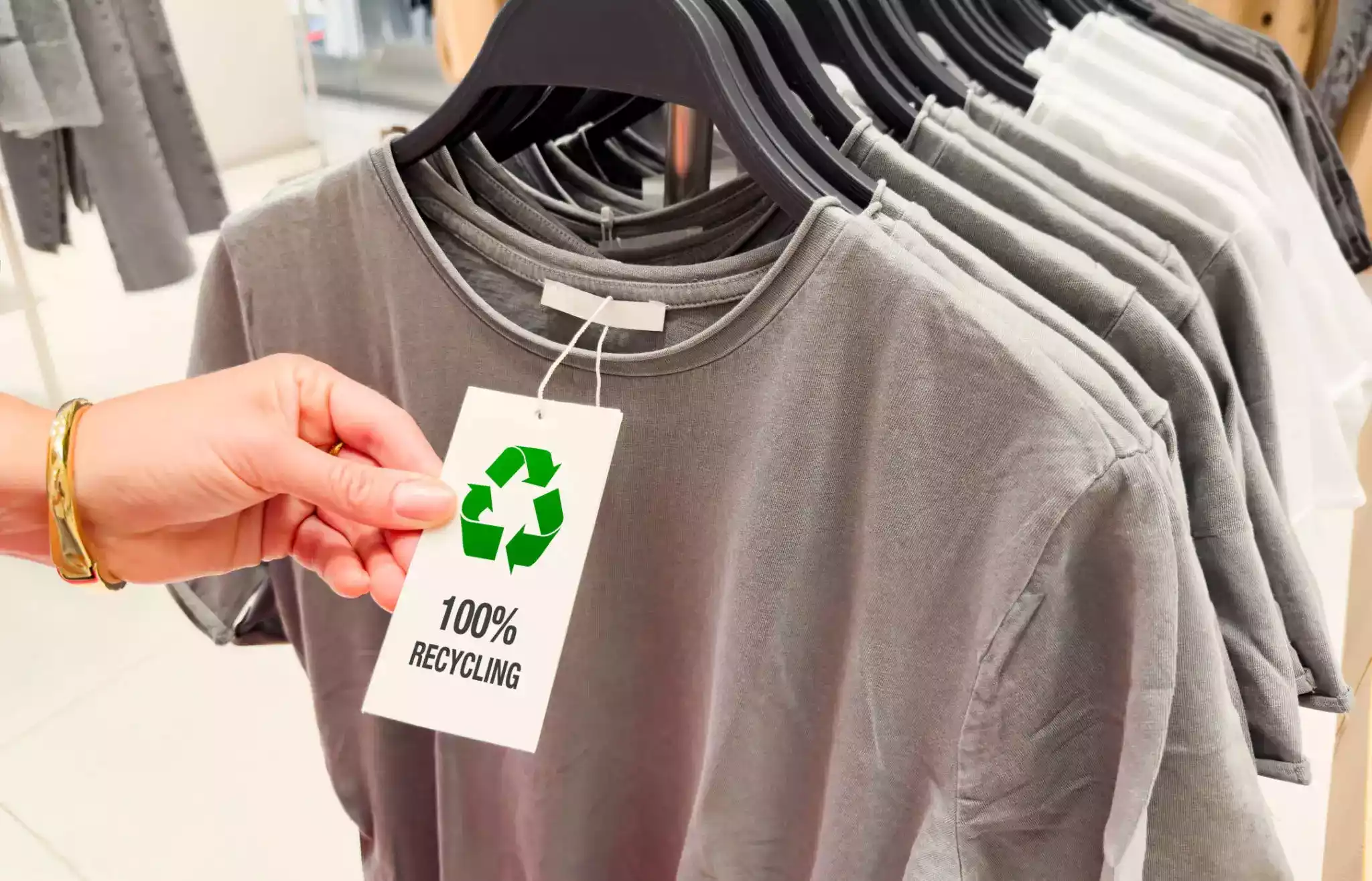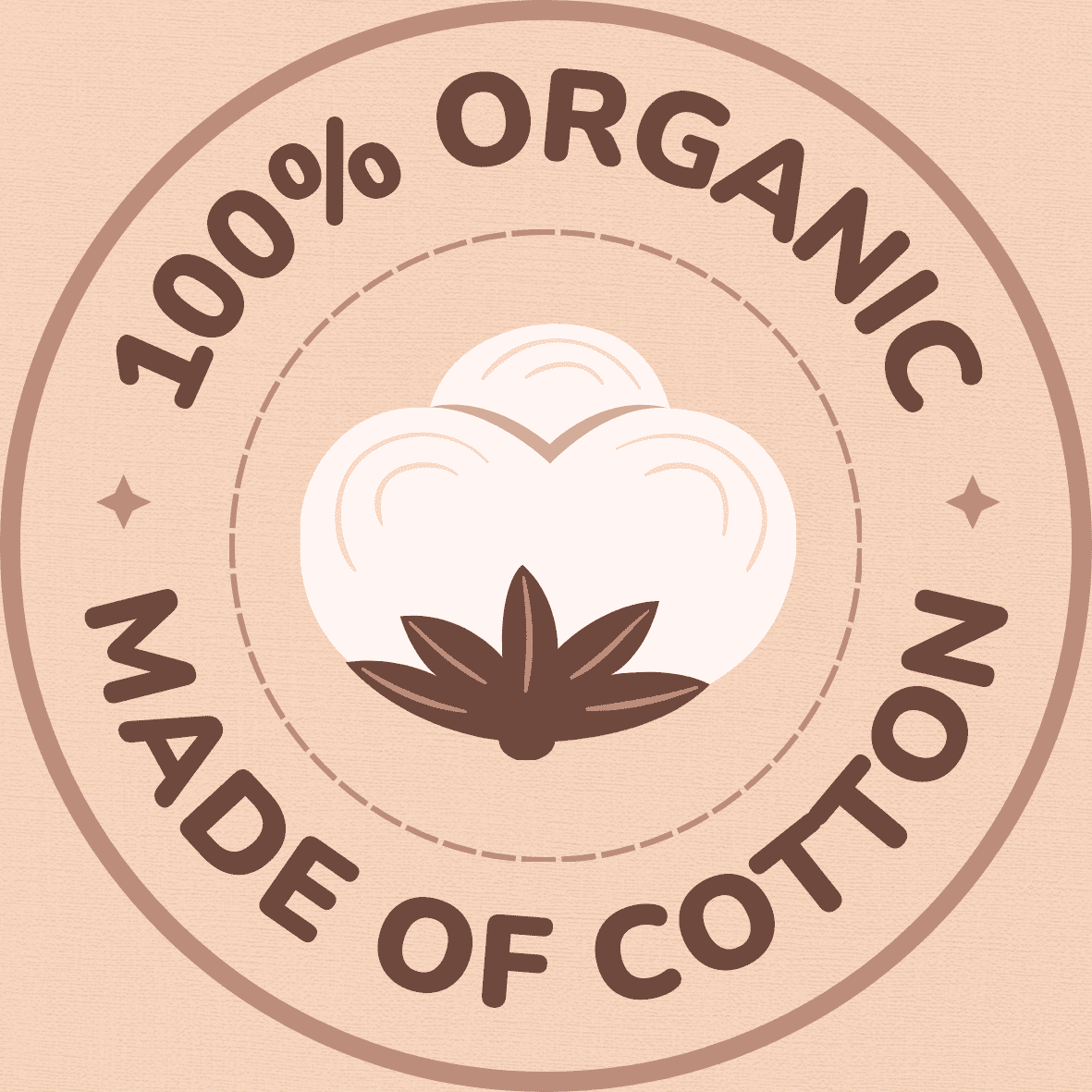Join the movement towards sustainable fashion with eco-friendly clothing manufacturers leading the way in conscious design.
The Rise of Eco-Friendly Fashion: A Shift Towards Sustainability
The fashion industry has witnessed a significant shift towards sustainability in recent years, with the rise of eco-friendly fashion. Consumers are becoming increasingly conscious of the environmental impact of their clothing choices, leading to a growing demand for sustainable and ethical options. As a result, eco-friendly clothing manufacturers and eco fashion brands are emerging as leaders in the industry, offering innovative and responsible alternatives to traditional fast fashion.
These eco-friendly clothing manufacturers and brands prioritize the use of sustainable materials and ethical manufacturing practices. They seek out eco-friendly fabrics such as organic cotton, recycled polyester, and hemp, which have lower carbon footprints and reduce the reliance on harmful chemicals and pesticides. Additionally, these companies are committed to fair labor practices, ensuring that workers are paid fair wages and have safe working conditions. By adopting these key principles, eco-friendly clothing manufacturers are setting a new standard of sustainability in the fashion industry.
Exploring the Environmental Impact of Fast Fashion
The fashion industry has been booming in recent years, with consumers constantly seeking out the latest trends and styles. However, this high demand for fast fashion comes at a heavy environmental cost. The production of cheap, fast fashion items often prioritizes quantity over quality, leading to excessive waste and pollution. From the cultivation of raw materials to the manufacturing process and transportation, the environmental impact of fast fashion is significant.
To address these issues, eco-friendly clothing brands and eco clothing companies have emerged, championing sustainable practices and materials. These brands are committed to reducing their carbon footprint by implementing environmentally friendly production methods and using organic, recycled, or biodegradable fabrics. By promoting eco-consciousness and offering alternatives to fast fashion, these companies are leading the way towards a more sustainable future for the fashion industry.
Key Principles of Eco-Friendly Clothing Manufacturers

Eco-friendly clothing manufacturers adhere to several key principles in producing sustainable and environmentally conscious fashion. These principles guide their operations and ensure that their products are not only fashionable but also have a positive impact on the planet. One of the main principles is the use of sustainable materials in their production processes. Eco-friendly clothing companies prioritize the use of organic cotton, hemp, and recycled materials, which greatly reduce the ecological footprint associated with traditional textile production. By sourcing materials that have minimal environmental impact, these manufacturers contribute to the overall sustainability of the fashion industry.
Moreover, eco-friendly clothing manufacturers in the USA are committed to ethical manufacturing practices. They prioritize fair labor conditions, ensuring that workers are treated fairly, paid a living wage, and operate in safe working environments. Transparency in the supply chain is another fundamental principle these companies adhere to. They believe in providing consumers with the necessary information about the production process, including the source of materials and the manufacturing methods used. This transparency not only fosters trust but also educates consumers on the impact of their fashion choices. Overall, these key principles drive eco-friendly clothing manufacturers to adopt a holistic approach to sustainability, considering both the environmental and social implications of their operations.
Sustainable Fabrics: Innovations in Eco-Friendly Materials
In recent years, the fashion industry has seen a surge in the production and use of sustainable fabrics, as eco-friendly clothing manufacturers in the UK and Australia strive to reduce their environmental impact. These innovative materials are designed to be both stylish and environmentally conscious, providing consumers with a guilt-free option to update their wardrobes. From plant-based fibers like organic cotton and bamboo, to recycled materials such as polyester made from plastic bottles, the range of sustainable fabrics available is expanding rapidly.
One notable advancement in eco-friendly materials is the development of fabrics made from agricultural by-products. This approach not only reduces waste but also provides additional income for farmers. For example, pineapple leaf fibers can be transformed into a durable and versatile fabric known as Piñatex, which is often used as an alternative to leather. Similarly, fibers derived from the waste of citrus fruit processing have been used to create breathable textiles with a luxurious feel. These innovations highlight the potential for sustainable fabrics to be both environmentally friendly and economically beneficial, paving the way for a more responsible fashion industry.
Ethical Manufacturing Practices: Ensuring Fairness and Transparency
Ethical manufacturing practices are essential in the pursuit of fairness and transparency within the eco-friendly fashion industry. As consumers become more conscious of the impact their choices have on the environment, there is a growing demand for clothing that is not only sustainable but also ethically produced. For individuals interested in starting their own eco-friendly clothing line, it is crucial to prioritize ethical manufacturing practices from the very beginning. By choosing eco-friendly clothing manufacturers in Canada or other regions that adhere to transparent supply chains, fair labor practices, and sustainable production methods, aspiring designers can ensure that every step of their clothing line’s creation aligns with their values.
When establishing an eco-friendly clothing line, it is important to conduct thorough research to identify credible and reliable eco-friendly clothing manufacturers in Canada or other desired locations. Look for manufacturers that prioritize sustainable materials, fair wages for workers, and safe working conditions. Additionally, consider reaching out to organizations that certify and verify ethical manufacturing practices to ensure that the chosen manufacturers meet established standards.
In the pursuit of fairness and transparency, manufacturers should provide clear information regarding their supply chains and production processes. This allows consumers, and potential business partners, to have a complete understanding of the steps taken to create the garments. By being transparent about the origins of materials, the methods of production, and the treatment of workers, ethical manufacturers foster trust and strengthen their reputation within the eco-friendly fashion industry.
In conclusion, ethical manufacturing practices play a vital role in ensuring fairness and transparency within the eco-friendly fashion industry. By carefully selecting eco-friendly clothing manufacturers in Canada or other regions and prioritizing transparent supply chains, fair labor practices, and sustainable production methods, aspiring designers can establish a clothing line that meets the growing demand for eco-friendly and ethically produced garments. Ultimately, by emphasizing ethical manufacturing practices, individuals can contribute to building a more sustainable and responsible fashion industry.
Eco-Friendly Fashion Icons: Celebrity Advocates for Sustainable Clothing

In recent years, we have witnessed a surge in the number of celebrities who are actively promoting and endorsing eco-friendly clothing. These fashion icons have recognized the importance of sustainable fashion and have used their influence to raise awareness about the need for environmentally-friendly choices in the industry. By aligning themselves with eco-friendly clothing manufacturers, these celebrities are making a powerful statement and encouraging their fans to support brands that prioritize sustainability.
One of the key motivations behind this movement is the desire to combat the negative environmental impacts of the fashion industry. These eco-friendly fashion icons understand that traditional clothing manufacturing practices often contribute to pollution, resource depletion, and waste. By collaborating with eco-friendly clothing manufacturers, these celebrities are advocating for more sustainable practices, such as the use of organic and recycled materials, reducing water and energy consumption, and prioritizing ethical labor standards. The fact that these eco-friendly options are often affordable and accessible further emphasizes the importance of supporting brands that prioritize both sustainability and affordability.
Without the strong endorsement and advocacy of these eco-friendly fashion icons, the movement towards sustainable fashion would not have gained as much momentum as it has today. These celebrities are not only influencing popular culture and setting trends; they are also inspiring their fans to make conscious choices when it comes to their own fashion consumption. By actively promoting eco-friendly clothing, they are reshaping the industry and paving the way for a more sustainable and ethical future.
Accessible and Affordable: Eco-Friendly Clothing for All
With the growing awareness and demand for eco-friendly fashion, there has been a notable effort in making sustainable clothing more accessible and affordable for all. This shift in the industry has made it possible for consumers to choose environmentally friendly options without breaking the bank.
One strategic approach to providing accessible and affordable eco-friendly clothing is through collaborations between sustainable fashion brands and high-street retailers. By teaming up, these brands can reach a wider audience and offer their environmentally-conscious designs at more affordable price points. This allows individuals from various socio-economic backgrounds to participate in the sustainable fashion movement without sacrificing their budget or compromising their values. Additionally, online marketplaces and platforms dedicated to sustainable fashion have emerged, making it easier for consumers to find and purchase eco-friendly clothing at competitive prices.
In conclusion, the efforts to make eco-friendly clothing accessible and affordable for all are paving the way for a more sustainable fashion industry. Collaboration between sustainable brands and mass-market retailers, along with the rise of online platforms, has opened up opportunities for individuals to make conscious and environmentally responsible choices without breaking their budget. As this trend continues to grow, it is becoming increasingly evident that wearing eco-friendly clothing is not limited to a select few, but rather a possibility for everyone who wants to make a positive impact on the planet through their fashion choices.
• Collaborations between sustainable fashion brands and high-street retailers have made eco-friendly clothing more accessible and affordable.
• These collaborations allow environmentally-conscious designs to be offered at more affordable price points.
• Online marketplaces and platforms dedicated to sustainable fashion have emerged, making it easier for consumers to find and purchase eco-friendly clothing at competitive prices.
• The efforts to make eco-friendly clothing accessible and affordable are paving the way for a more sustainable fashion industry.
• Collaboration between sustainable brands and mass-market retailers, along with the rise of online platforms, has opened up opportunities for individuals to make conscious choices without breaking their budget.
• Wearing eco-friendly clothing is not limited to a select few but rather a possibility for everyone who wants to make a positive impact on the planet through their fashion choices.
The Role of Technology in Advancing Eco-Friendly Fashion
Advancements in technology have played a significant role in advancing the eco-friendly fashion movement. From the development of innovative materials to improvements in manufacturing processes, technology has opened up new possibilities for creating sustainable and environmentally friendly clothing.
One key area where technology has made a difference is in the creation of sustainable fabrics. Traditional textiles often rely on harmful chemicals and intensive processes that have a negative impact on the environment. However, technological innovations have led to the development of eco-friendly materials, such as organic cotton, recycled polyester, and bamboo fabric. These materials are not only better for the planet, but they also offer unique properties that make them highly desirable for fashion designers and consumers alike. Technology has made it possible to create fabrics that are not only sustainable but also durable, moisture-wicking, and wrinkle-resistant, meeting the demands of today’s conscious consumers.
Eco-Friendly Fashion Brands: A Look at Industry Leaders

As the demand for sustainable fashion continues to grow, numerous eco-friendly fashion brands have emerged as industry leaders. These brands are committed to producing clothing that not only looks great but also has a positive impact on the environment. One such brand is “Green Threads,” which is known for its use of organic and recycled materials in their apparel. By prioritizing sustainability in their production processes, Green Threads sets a high standard for other companies in the industry. Another prominent eco-friendly fashion brand is “EcoChic,” which focuses on creating stylish and durable clothing using eco-friendly materials such as bamboo and hemp. Along with their commitment to sustainability, both Green Threads and EcoChic also prioritize transparency and ethical manufacturing practices, ensuring that their garments are produced under fair working conditions.
In addition to these industry leaders, other eco-friendly fashion brands are making significant strides in the sustainable fashion movement. “SustainStyle” is a brand that stands out for its innovative use of upcycled fabrics and materials. By repurposing existing fabrics instead of producing new ones, SustainStyle reduces waste and minimizes their environmental impact. Another noteworthy brand is “EcoWear,” which has gained recognition for its commitment to creating accessible and affordable eco-friendly clothing. They believe that sustainable fashion should be accessible to everyone, regardless of budget, and strive to make their products affordable without compromising their commitment to sustainability. These industry leaders are paving the way for a more sustainable future in the fashion industry and inspiring other brands to follow suit.
Fashion with a Conscience: How Consumers Can Support Eco-Friendly Clothing Manufacturers
In today’s increasingly eco-conscious world, consumers have the power to make a positive impact on the fashion industry by supporting eco-friendly clothing manufacturers. One key way to do this is by actively seeking out brands that prioritize sustainability and ethical practices. By researching and purchasing from these brands, consumers can help create a demand for eco-friendly fashion, encouraging other companies to follow suit.
Another way consumers can support eco-friendly clothing manufacturers is by embracing a more minimalist approach to shopping. Instead of constantly buying new items, consumers can focus on investing in timeless, high-quality pieces that are made to last. This not only reduces the demand for fast fashion but also promotes the concept of sustainable fashion consumption. Additionally, consumers can consider renting or borrowing clothes for special occasions, further reducing the need for excessive consumption. By making conscious choices and supporting eco-friendly clothing manufacturers, consumers can play a vital role in shaping the future of the fashion industry.
What is eco-friendly fashion?
Eco-friendly fashion refers to clothing that is produced and manufactured in a way that minimizes its impact on the environment. It involves using sustainable materials, implementing ethical manufacturing practices, and promoting transparency and fairness throughout the entire supply chain.
Why is eco-friendly fashion important?
Eco-friendly fashion is important because it addresses the harmful environmental and social impacts of the fashion industry. By supporting eco-friendly clothing manufacturers, consumers can contribute to reducing pollution, conserving resources, and promoting fair labor practices.
What is fast fashion?
Fast fashion is a term used to describe the rapid production and consumption of clothing in response to the latest fashion trends. It often involves low-quality materials and unethical manufacturing practices, resulting in a significant environmental and social footprint.
How does fast fashion impact the environment?
Fast fashion contributes to environmental degradation through excessive water usage, chemical pollution, and textile waste. It also leads to the depletion of natural resources and the release of greenhouse gases during production and transportation.
What are sustainable fabrics?
Sustainable fabrics are materials that are produced using methods that have a lesser environmental impact compared to traditional fabrics. Examples include organic cotton, bamboo, hemp, and recycled polyester. These fabrics are often grown or manufactured without the use of harmful chemicals or excessive water.
How can consumers support eco-friendly clothing manufacturers?
Consumers can support eco-friendly clothing manufacturers by making informed purchasing decisions. This includes choosing brands that prioritize sustainability, ethical practices, and transparency. Consumers can also opt for secondhand clothing, repair and upcycle their clothes, or engage in clothing swaps to reduce waste.
Are eco-friendly clothing options expensive?
Eco-friendly clothing can range in price, but there are options available at various price points. While some sustainable brands may be more expensive due to the ethical and sustainable practices involved in production, there are also affordable options available, such as thrifted or secondhand clothing.
How can technology contribute to eco-friendly fashion?
Technology plays a crucial role in advancing eco-friendly fashion. It enables the innovation of sustainable materials, improves supply chain transparency, and supports more efficient production processes. Technologies like 3D printing, digital manufacturing, and blockchain can help reduce waste, increase recycling, and ensure traceability.
Who are some eco-friendly fashion icons?
There are several celebrities who advocate for sustainable clothing and promote eco-friendly fashion. Examples include Emma Watson, Stella McCartney, and Leonardo DiCaprio. These individuals use their influence to raise awareness about the environmental and social impacts of the fashion industry.
Are there any industry leaders in eco-friendly fashion?
Yes, there are many eco-friendly fashion brands that lead the industry in terms of sustainability and ethical practices. Some notable examples include Patagonia, Everlane, Eileen Fisher, and Reformation. These brands prioritize transparency, fair labor, and the use of eco-friendly materials in their production processes.




